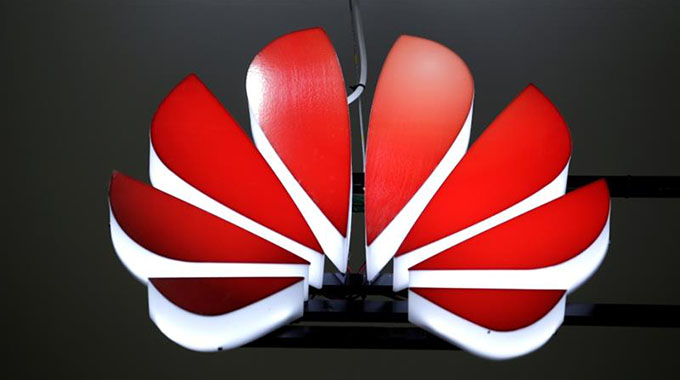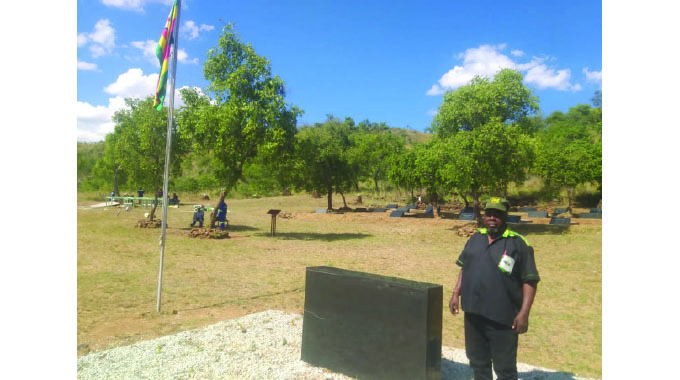Local mobile companies should emulate Huawei Zimbabwe

Beaven Dhliwayo Features Writer
Information Communication Technology (ICT) companies should emulate the Chinese technology company, Huawei Zimbabwe, which is equipping local Universities with ICT infrastructure to enable them to offer latest training in ICT.
There are many local companies in the ICT business and they should follow the footsteps of Huawei, which is supporting a local university.
Last week, Huawei donated Base Station Equipment to the University of Zimbabwe (UZ) worth US$100 000, which is widely used in wireless network.
The equipment is composed of a high-power and compact GSM outdoor macro simulator base station, OptiX RTN 950 integrated microwave transmission system for mobile communication networks, microwave antennas and routers, optical interface board, 3 000 watts solar power module, rechargeable batteries, optical fibres cables, training software and various installation accessories and logistics for the equipment.
The equipment is a critical mobile network component that controls one or more base transceiver stations (BTS), also known as base stations or cell sites.
Key BTS functions include radio network management (such as radio frequency control), BTS handover management and call setup.
Handing over the equipment to UZ acting Vice Chancellor Professor Paul Mapfumo, Huawei Zimbabwe (Pvt) Limited managing director Hao Wen said since entering the Zimbabwe market in 1998, Huawei has grown significantly to become a leading ICT player.
“We are committed to building a better connected Zimbabwe, to bridge the digital divide by increasing network coverage. So far, we have been building more than 2 500 kilometres optical cable and serving over four million people, together with our customers.
“As part of our ongoing investment, Huawei has created over 20 000 jobs directly and indirectly. We would also like to continue to cooperate with Zimbabwean schools, universities and colleges to build capacity and enhance technical skills transfer to students.
“This laboratory equipment will enable University of Zimbabwe to offer the latest technical training to students and professionals in the industry. We hope they could help developing local ICT talent and boosting ICT industry development of Zimbabwe,” says Hao.
Hao also said Huawei intends to continue creating continuous innovation and cooperation in the ICT Industry through its Seeds for the Future programme.
“Seeds for the Future is Huawei’s largest global CSR programme. We leverage our world-leading ICT technologies in the programme to cultivate ICT professionals in the countries where it operates and thus drive the local ICT industry forward.
“The Seeds for the Future programme was first launched in Zimbabwe in 2015. Over the four years, the programme has seen over 40 outstanding students travel to China for training.
“Today I’m glad to announce the launch of the Seeds for the Future 2019 programme. We are looking forward to seeing new faces to join the programme this year,” says Hao.
Chinese embassy official Chen Ning said the donation by Huawei Technologies of state-of-the-art ICT equipment to UZ is one example of strategic partnership between the countries.
“I wish to commend Huawei Technologies Zimbabwe for successfully partnering with the University of Zimbabwe in this way to provide cutting edge technical skills for students and professors and hence support them to train their students.
“Huawei has drastically expanded this initiative to reach more universities, their professors, and their students through the Seeds for the Future programme,” says Chen.
Minister of Higher and Tertiary Education, Science and Technology, Prof Amos Murirwa applauded Huawei saying it is complementing Government initiative where it created Innovation Hubs in institutions of learning in a bid to create spaces of new ideas to launch and make higher education serve a greater good.
“We therefore thank Huawei most sincerely and I urge the UZ to utilise this partnership to move forward and give hope to the World at large,” says Prof Murwira.
Information Communication Technology Postal and Courier Services Minister Kazembe Kazembe weighed in saying the donation of ICT equipment by Huawei will help assist Zimbabwean universities in the delivery of lifelong knowledge in ICT that will match industry requirements and transform them into world class graduates and professionals.
“This will enhance professional skills and competency in ICT among ICT practitioners and science and technology and engineering students and graduates for the benefit of the country as we move towards an upper middle income economy by 2030,” says Kazembe.
In his acceptance speech, UZ acting Vice Chancellor Prof Mapfumo says the equipment will be a backbone for new programmes that will fill the gap that exists in emerging ICT studies.
“With this equipment, UZ looks forward to becoming a centre of excellence in ICT training and research very soon,” says Prof Mapfumo.
Zimbabwe launched its Science and Technology Policy in 2012, to promote the country’s science and technological advancement.
The S and T policy underscores the importance of mainstreaming science in all sectors of the economy and ensures that Zimbabweans benefit from acquisition and utilisation of available technology in improving the quality of their lives.
Econet Wireless Zimbabwe, the country’s largest provider of telecommunications services, should be following the footsteps of Huawei to improve innovation in our local universities by way of providing the right infrastructure to capacitate the institutions with modern state-of-the-art equipment that will make learning and teaching in the ICT sector more effective.
This will enhance professional skills and competence in ICT and engineering students for the benefit of the country as it moves towards an upper-middle income economy by 2030.
Such Public-Private Partnerships will go a long way in supporting the financing of critical ICT needs in the local universities.
Econet is one of the largest companies on the Zimbabwe Stock Exchange in terms of market capitalisation and should be leading in these kind of initiatives to benefit local universities.
For its financial year 2018, the company reported $831,6 million top line revenue which was a 34 percent increase from the $621,7 million reported in the prior year, with a significant 57.3 percent of total revenue coming from its financial technologies, technology and data services.
Other notable companies which should improve ICT infrastructure in local universities are companies such as Gtel, Telecel, NetOne and numerous others.
All the companies should also aim to build strategic partnerships to help improve ICT infrastructure in local universities and schools to help empower students.
Huawei partnership with UZ is a good model which must be expanded to other tertiary institutions, primary and secondary schools countrywide.
The Chinese technology giant partnered with the UZ in the creation of the Bachelor of Science Honours degree in Electronics and Telecommunication Technologies programme in 2018.
Huawei is the only vendor offering end-to-end 5G solutions.
By the end of 2018, Huawei had signed over 30 commercial contracts to build 5G networks and had shipped over 25 000 5G base stations.







Comments